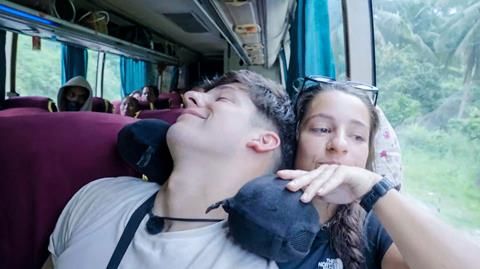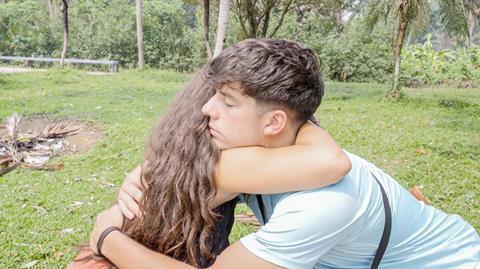Race Across the World: how producers got cast to open up

Race Across the World producers have stressed the importance of 'embedding' with the cast to allow their personal stories to emerge over time.''
Assistant producer Mila Araoz was with contestants Betty and James for the currently airing fourth series of Studio Lambert's'BBC1'competition format. She revealed that being embedded with them 24 hours a day ' doing all the things they do - was necessary to get the best content out of them.''

Betty and James in Race Across the World
'Over time you become closer to them and able to ask more personal questions,' she told an audience at the Media Production and Technology Show today.''
'You have to be on all those overnight buses and sleeping on the ground in tents so you can empathise, and they can see you are doing everything that they are. It makes for really good stories because they trust you.''
Araoz, who also worked as an assistant producer on Bafta winning Celebrity Race Across the World, revealed that there is very little opportunity for crew to switch off, despite the guidelines stipulating only they need four hours of footage for every day of filming.''
'You have to be a bit flexible,' she said, adding that the whole process is 'challenging' and 'nerve-wracking'.'
'We can put cameras down on a bus but I'm always listening out for what [the cast] are saying, because they might start talking about something important that we want to start filming. I'd be switched on throughout a 22-hour bus journey.''
Executive producer Stephen Day believes capturing the 'emotional journey' of the cast is as important as the race journey.''
'The most difficult thing in the edit is balancing those main elements of the race and the character journeys and relationships,' he said.''

Betty and James in Race Across the World
'We've taken chances with people who have emotional stories or are at a crossroads in life so we would get a lot of substance.''
He added that there is a lot of consideration around matching the crew to the cast because they have to get on with and trust each other, but still have some level of authority over them.''
'They can't become their friend too much - it's a balance,' he said.''
For Day, the success of the series lies in the fact that 'anything could happen'.
Before the first series was commissioned, he said the'BBC'insisted a race format must feel like it could 'run off the rails'.''
'That was always paramount in our minds,' he said.''Embedded programmes often stop filming at 6pm and people go home or back to a hotel. But we wanted the ability for the teams to keep rolling. The idea that anything could happen is really important.''
)
)
)
